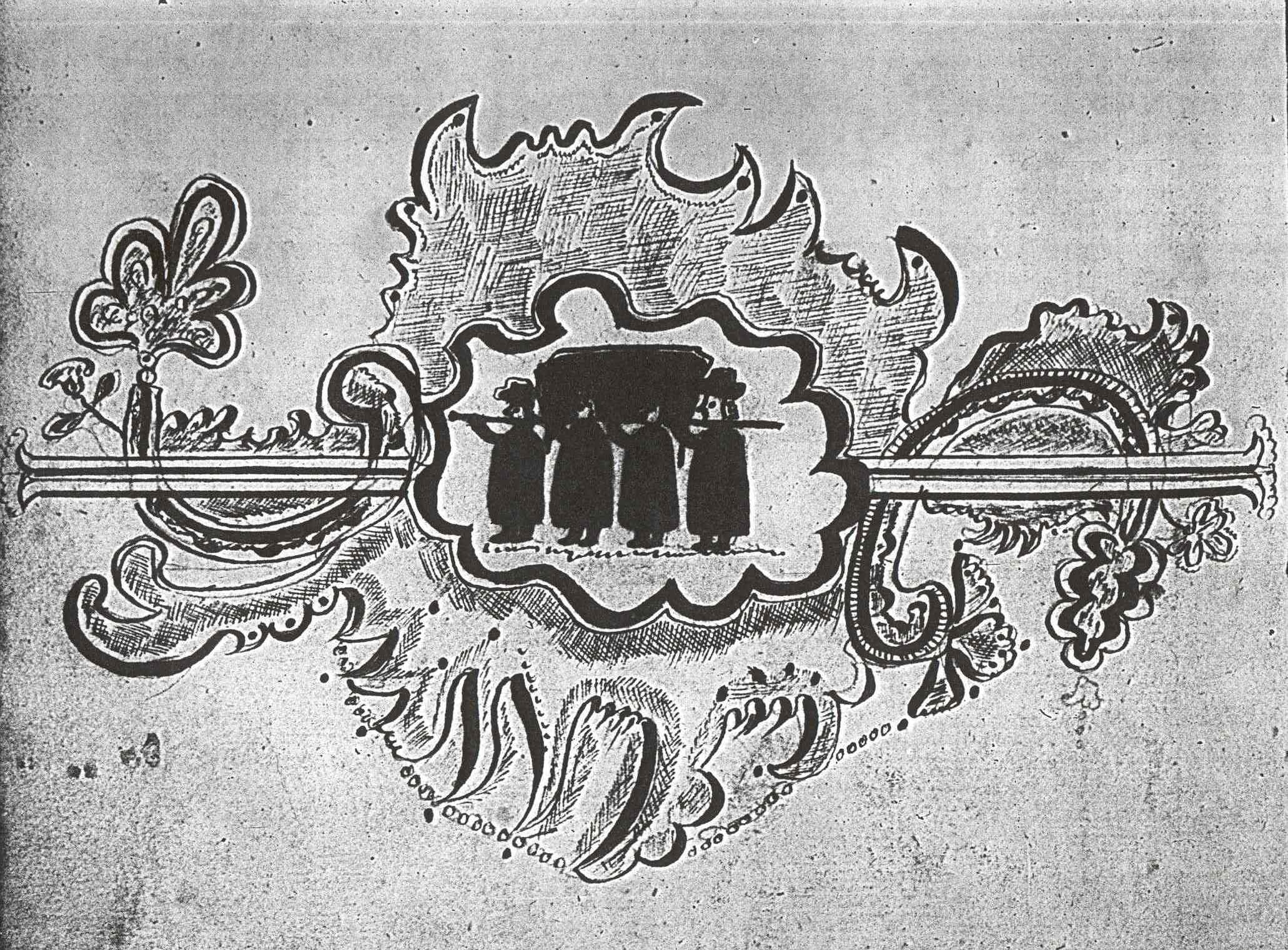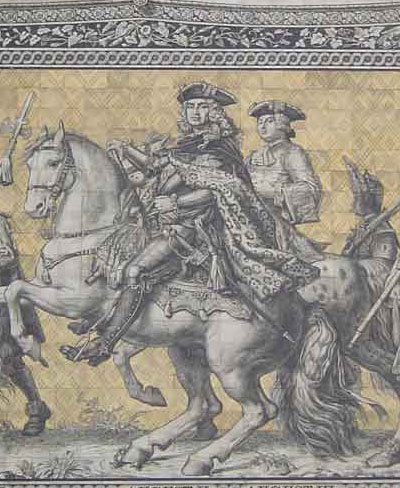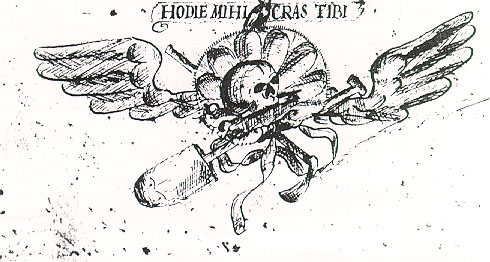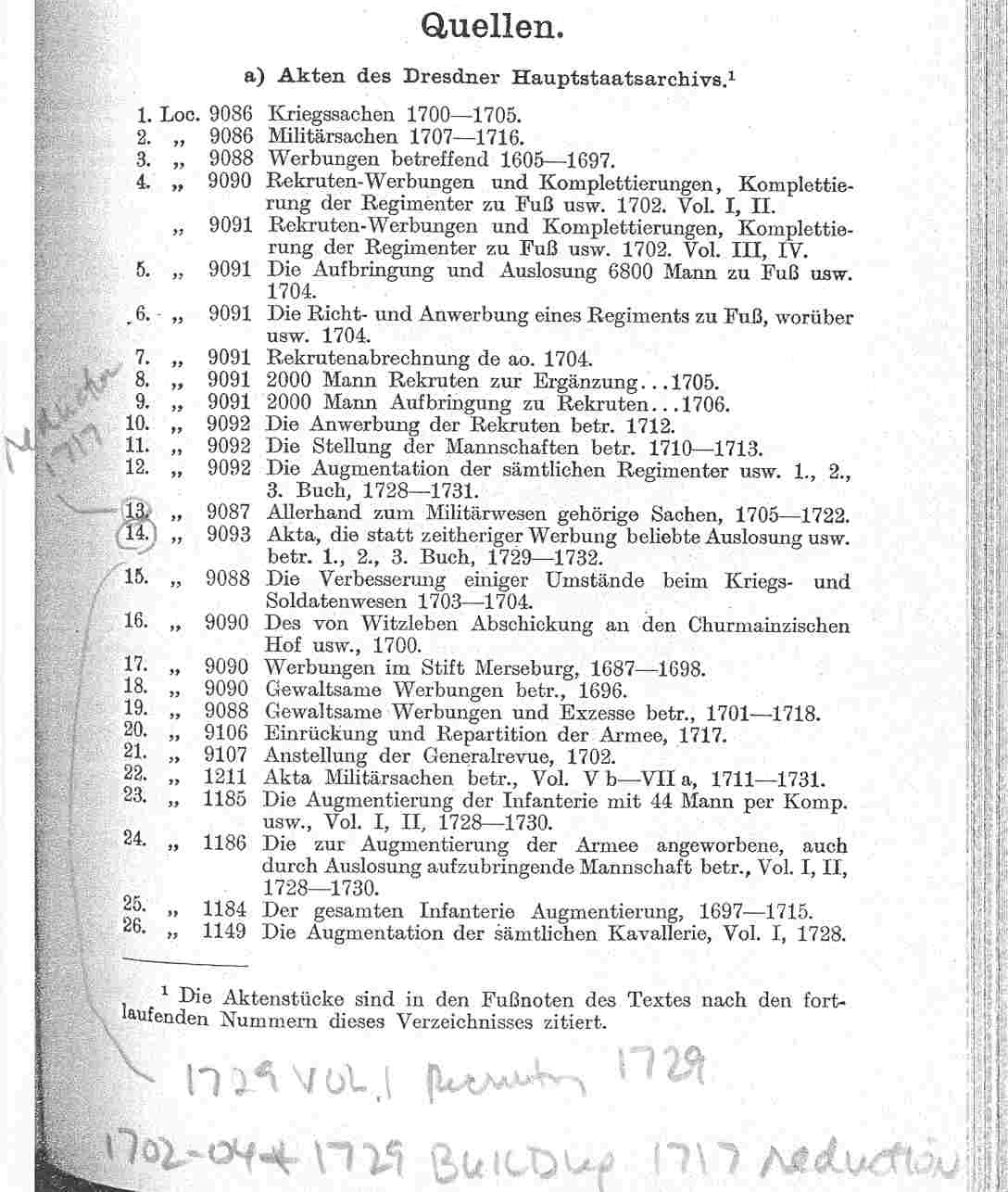

(From a West Prussia Churchbook)
This Part of Poland in Great Northern War
(several book excerpts)
From the New Cambridge History Volume 6
Pages 604 to 707
On the devastated villages...
Sweden's defeat and the restoration of Augustus (Augustus the Strong) opened a period of critical importance to Poland's destiny. In large measure it was to make Poland's eventual collapse inevitable. During the wars of the 1650's a program of reconstruction had been drawn up which should have enabled the country to hold its own against neighboring military absolutisms. Fifty years later, its political independence had already been impaired. Hence aspirations for internal reform combined with efforts toward emancipation. The problem was posed in so many different shapes that no means was found of cutting the Gordian knot. And behind all the country's formidable political difficulties lay sheer exhaustion.
Poland certainly gathered the fruits of indecision. Long years of war, with the constant billetings and tramping of troops across the country, had brought
widespread ruin. In Poland, the Russian, Swedish and Saxon armies alike lived off the land over which they maneuvered, falling mercilessly on village and town for contributions of money and supplies. It is estimated that 60 million thalers were extorted in this way more than triple the total revenue of the Polish government budget throughout the Great Northern War. Gdansk, the only city never to surrender to foreign arms, yet contributed several hundred thousand thalers. The severest retribution wag meted to political opponents. For instance, in 1706 the Swedes gutted 140 villages belonging to one of Augustus's supporters in Volhynia; next year the Russians behaved likewise in central Poland; and in 1716 the Saxon army burned the estates of the king's opponents. In the wake of this destruction, whose proportions have never been explored, came pestilence and famine. A vast epidemic of the bubonic plague, spreading through the whole country between 1706 and 1713, thinned out the population; several towns were virtually depopulated. High mortality also occurred in years of poor harvest, especially 1714-15. The population, which had reached about 10 million around 1650, fell to scarcely 6 million. It is not surprising that whole villages and even towns lay empty. The survey of Crown properties undertaken in 1710-15 constantly reported heavy losses of population, buildings destroyed, untilled fields, absence of estate inventories and lack of corn for sowing.
The picture above is of a section of the scroll in Dresden showing the succession of Saxon Kings. Augustus II (first shown, known as Augustus the Strong) and next to him his nephew Augustus III. Augustus II and III were both elected King of Poland. The situations described in these paragraphs were from the era of their kingships.
These reverses did not alter the relation of nobles and serfs. Personal restrictions on the peasants were not relaxed. It was hard to reconstruct an estate in these circumstances, or even to re-create conditions of minimum prosperity. On1y in the next generation did the countryside rise above the catastrophe. The towns presented an even sorrier picture. They had suffered in the stream of wars for over half a century. Previously, in the unfavorable environment of a manorial economy based on serf labor, the towns had at least managed to keep going; the new misfortunes brought ruin. Nowhere, perhaps, in the Europe of the time was the plight of the towns so pitiable. Burned, sacked, depopulated, overburdened by debts to clergy and magnates, they had no resources for reconstruction, let alone development. Urban craftsmanship, competing with rural crafts supported by the nobles, was reduced to minimal production. Commerce stagnated. The urban midd1e class, already weak, became quite incapable of any significant role in Poland's political or economic life; and the task of modernizing the State was rendered that much more difficult.
The misfortunes of war hit the nobility too, both the middling sort and the magnates. The armies had no respect for aristocratic immunity: and noblemen 's estates, once devastated, never produced the same revenue as before. The magnates, often with many estates scattered through different provinces, escaped more lightly, but the midd1ing nobles were exposed to full catastrophe. They sought asylum with more powerful neighbors, crowding the magnatial retinues. Rivalry between magnates and gentry thus ceased to be a major factor in the politics of the Poland. It was replaced by the more frequent contests of competing magnates and their clienteles, who habitually obstructed the formation of the royal party desired by patriots - for, after so much grim experience, some of the nobles were indeed interested in reform, if only partial reform.
The first decade of the eighteenth century witnessed a creeping disintegration of the State (Poland). The disintegration of government followed the demoralization and political bewilderment of the nobles.
Corruption was practiced by even the highest dignitaries. The politicians switched from one faction to another and back again, sometimes for casual profit, sometimes to safe- guard their properties. It was an exceptional man indeed who achieved political consistency. And yet, paradoxically, it was among elements of the nobles who preserved their public spirit that there appeared a movement to obstruct military and financial reforms for these depended on a strengthening of the royal power.
(From a West Prussia Churchbook)
Pages 778 to 779
Why the Wenski's Fought in the Swedish Army?
In 1688 a majority of officers in the Prussian army already came from Prussian nobility; but in Brandenburg, and even more in East Prussia, strong conservative tendencies at first held back many potential officers. Not all gentry circles accepted the elector's increased authority. Some clung to old-fashioned habits of mind in other respects; they remained in the countryside, often poor, not very different in outlook from groups of the szlachta in parts of Poland who spent their lives splitting and resplitting small family heritages. A few families were proud and substantial enough to feel genuinely independent. Their members, if they chose a military career, in many cases preferred to serve foreign princes. Yet the desire for employment was a powerful impulse in Brandenburg, as everywhere else, and the elector's was a large army. It could hardly escape attention that his most successful commanders were generously rewarded with territorial grants, or that any rank from the captain's upwards promised a livelihood.
For the captain, besides pay and allowances, had the profits of his company - the difference between the costs of recruiting, equipping and paying his men, and the sums paid him by the State. A colonel equally drew pay and allowances and enjoyed the sundry profits of managing a regiment, but in addition kept his company in the regiment. Generals and general officers often kept the profits of both their regiments and their companies. This inducement gained in substance between 1688 and 1713. The military activity of the north German states was then paid for by Dutch and English subsidies, and by contributions from occupied areas, as well as by heavy taxation at home. In spite of arrears, the war pay of officers compared well with the scanty income of many German gentry.Moreover, a strong military tradition stretched back in certain families to the Thirty Years War. Many young gentlemen from northern Germany hurried south to fight in the Turkish wars after 1683, and astonishing numbers joined the Danish army. Brandenburgers were bound to enter their elector's own force from the same motives. The Great Elector, for his part, employed them without any intention either of insisting on their service or of allowing them a monopoly. He welcomed foreign soldiers and promoted his commoners. Above all, he recruited Huguenots: in 1688, out of 1,030 commissioned officers in his total force, at least 300 were Huguenot. But after 1700 King Frederick I's army was largely though not exclusively officered by his own nobles, and the same was true of the forces raised by princes of the House of Brunswick, including Hanover. It must be remembered that in the Protestant States of the Empire (and in Scandinavia). The alternative of a career in the Church, common enough in Catholic Europe, hardly existed for men of quality.
On the other hand, the strain of war helped to keep entry into the officers' ranks in Brandenburg and elsewhere fairly open. Every army increased in size. Exercising the troops grew more meticulous in the better units. Military organization became more complex: regiments were split into battalions in garrison and abroad, and they were joined together in brigades while on campaign. For these reasons more officers were needed.
Colonel-lieutenants, majors, staff captains and second lieutenants became common appointments. All this compelled German governments to encourage able commoners. In 1704 Frederick I promised formally that in his Guards they should stand an equal chance of promotion with their colleagues of privileged origin; he also ennobled freely unlike his successor. Hence German armies still provided a career reasonably open to talent. After 1713, however, the proportion of non-noble officers gradually ebbed away. In 1714 Frederick William dismissed far more commoners than noble officers; but the general movement of the nobility into war- service had already anticipated his policy.
Fractured Europe: 1600-1721
By Sturdy, published by Blackwell, 2002 p. 385
The (Great) Northern War had repercussions on all the belligerent states ... First there was Poland. The restoration of Augustus II failed to bring stability to the country. ... A civil war broke out, and for a time it looked as if the Polish forces might overthrow Augustus. Peter I of Russia intervened to save Augustus, but demanded a price. Convinced that Poland was irredeemably anarchic, Peter placed it under his "protection" in 1717 by imposing a settlement on the Polish diet. Augustus II was confirmed as king, but the Saxon army would have to leave Poland. (I might note that what actually happened is that the Saxon Army was demobilized in 1717 and many soldiers chose to stay in Poland rather than returning to Saxony.)
Epidemics and Pandemics
By JN Hays, ABC-CLIO: Santa Barbara 2005, p. 100
Armies in early modern Europe were in many ways ideal diffusers of epidemic disease. The states of the period were only gradually moving toward control of full time armies, and that control only became generally effective in the eighteenth century. Many sixteenth- and seventeenth-century armies were mercenary, recruited by states for a campaign and then disbanded. Even when war continued, armies often broke up during the winter months, to be reassembled in the spring. There armies were therefore poorly paid, often badly disciplined if at all, and drawn largely from the most unfortunate classes of society. Many of their commanders tried to compensate them by allowing them license to loot, pillage, and rape. At times such an army could be an unpaid, itinerant, unwashed, promiscuous mob, living in close quarters among themselves and in close proximity to unwilling others. And the army moved from place to place both during campaigns and when it disbanded and scattered, carrying its diseases with it.
Following is a list of the records of the Sachsen Army in the Dresden Archives.

Click here to go to other West Prussia Villages.
Please send any information and queries to Bill Remus at
August 9, 2004